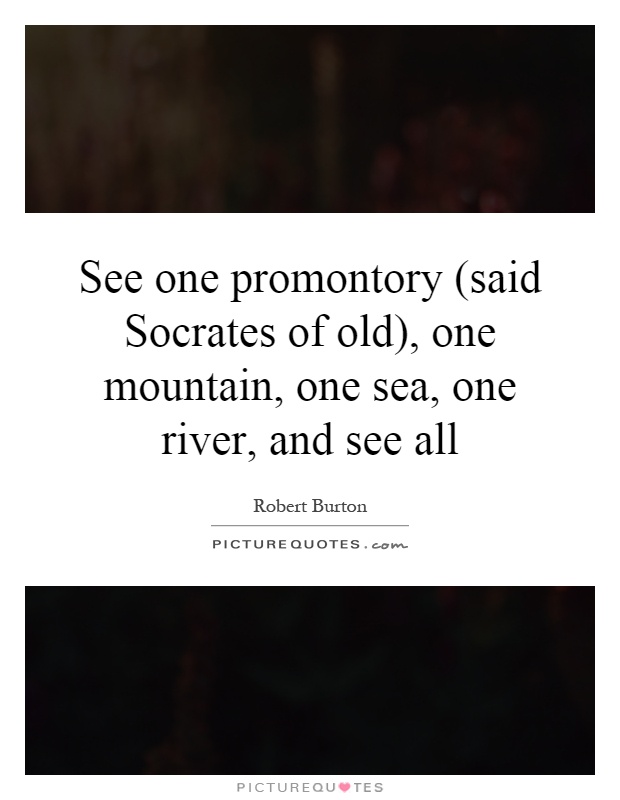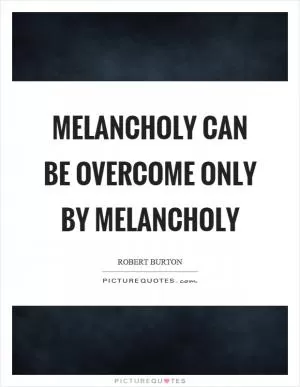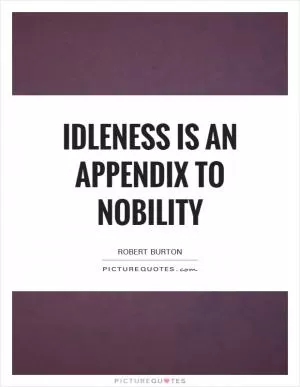See one promontory (said Socrates of old), one mountain, one sea, one river, and see all

See one promontory (said Socrates of old), one mountain, one sea, one river, and see all
The quote "See one promontory (said Socrates of old), one mountain, one sea, one river, and see all" is a profound statement that emphasizes the interconnectedness of nature and the unity of the world. This idea is echoed in the works of Robert Burton, a 17th-century English scholar and writer best known for his masterpiece "The Anatomy of Melancholy."In "The Anatomy of Melancholy," Burton delves into the complexities of human nature and the various factors that contribute to melancholy, or what we now refer to as depression. He explores the interconnectedness of the mind, body, and spirit, and how they are all influenced by external factors such as the natural world. Burton believed that by understanding the interconnectedness of all things, we can gain a deeper understanding of ourselves and the world around us.
When Socrates spoke of seeing one promontory, one mountain, one sea, and one river, he was urging people to look beyond the surface and see the underlying unity of nature. Each of these natural features may appear distinct and separate, but they are all interconnected and part of the greater whole. Similarly, Burton believed that by studying the individual components of human nature and the world around us, we can gain a deeper understanding of the interconnectedness of all things.
For Burton, the natural world was not just a backdrop for human existence, but an integral part of it. He believed that by immersing ourselves in nature and observing its beauty and complexity, we can gain a greater appreciation for the world and our place in it. Just as Socrates urged his followers to see all in one, Burton encouraged his readers to see the interconnectedness of all things and gain a deeper understanding of themselves and the world around them.












 Friendship Quotes
Friendship Quotes Love Quotes
Love Quotes Life Quotes
Life Quotes Funny Quotes
Funny Quotes Motivational Quotes
Motivational Quotes Inspirational Quotes
Inspirational Quotes